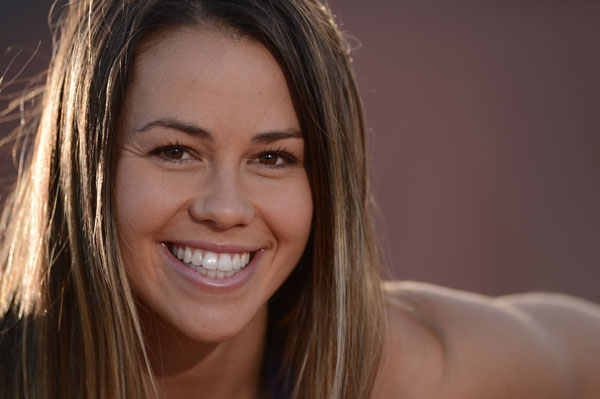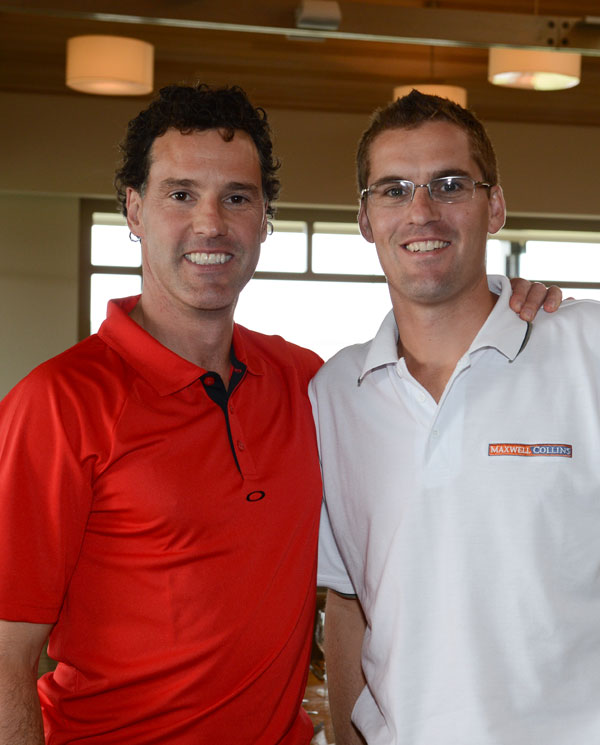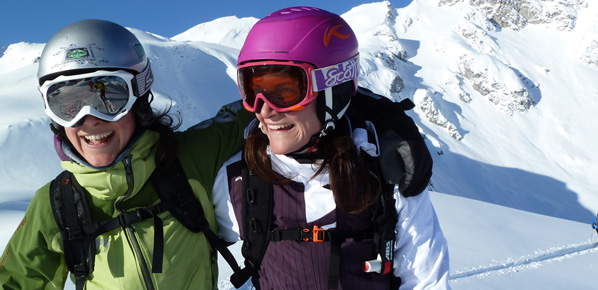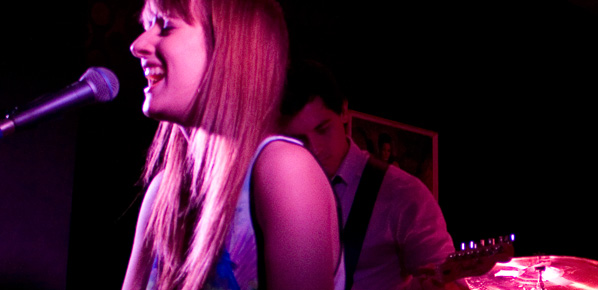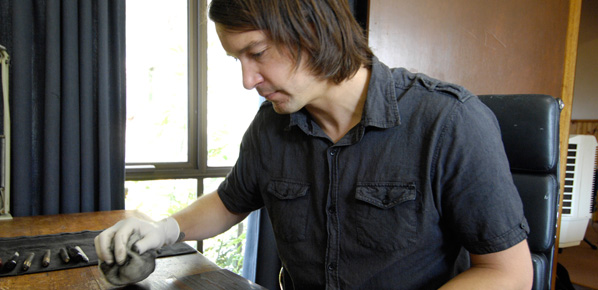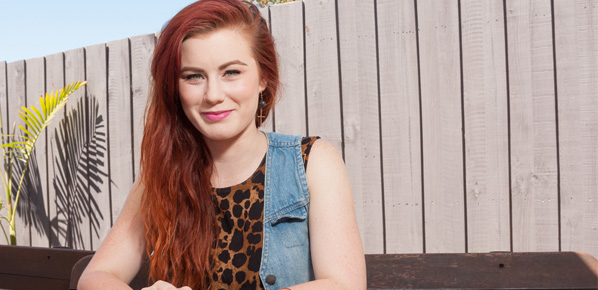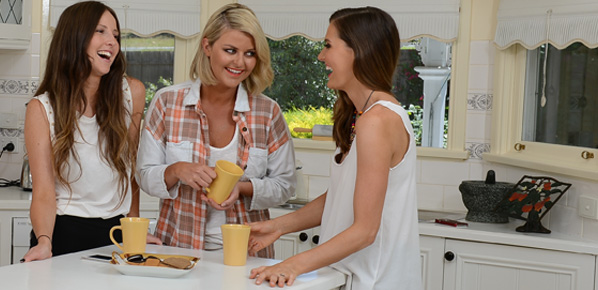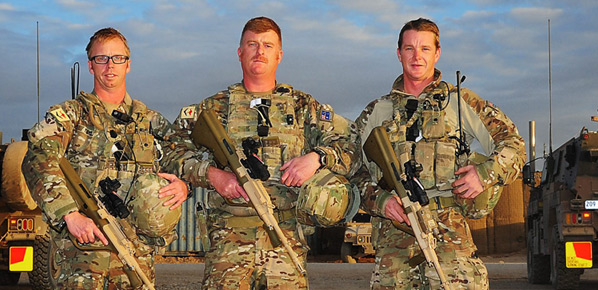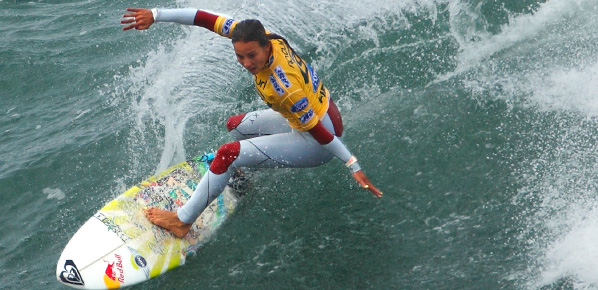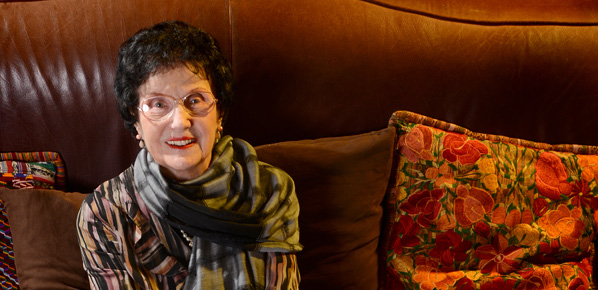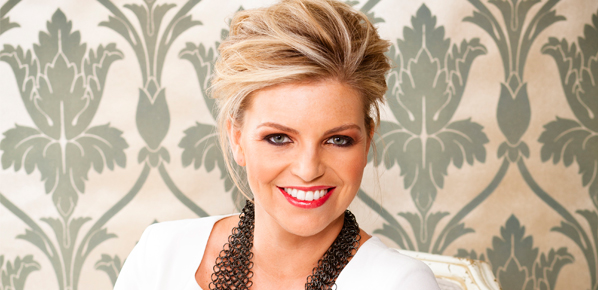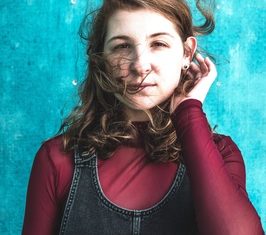Leading Geelong athletes Kelly Cartwright and Richard Colman reveal to GC’s JOHN VAN KLAVEREN the surprisingly demanding lifestyle of the contemporary Paralympian.
WHO knew being a Paralympian could be so busy?
The Olympics are on only every four years, so competitors have plenty of time between drinks to rest, train, and prepare, right?
Clearly, Kelly Cartwright, Richard Colman, Sam Macintosh and their fellow Paralympians didn’t get that memo.
London Paralympics long jump gold medallist Kelly Cartwright expected a rush immediately after her breakthrough win last year.
What she didn’t expect was the continued attention.
“It was busy right after the London Paralympics but since then I had some time off because I had an operation on my foot,” she says during a break in training at South Geelong’s Landy Field.
“But I’m back into it now and it’s been extremely busy. People know who I am now and it’s made a huge difference.”
The difference was significant for the Paralympics movement as a whole, Kelly muses.
“It’s been huge for the Paralympics. People are recognising me now and it’s a chance to raise the profile of the sport.
“It’s important the Paralympics gets the kudos, not just for myself, because all us athletes are trying to raise the profile, raise funds and be recognised as athletes.
“It’s been great for the profile of the sport. It shows people the hard work has paid off.”
An average Kelly week can include rising at 5am four morning to deliver motivational talks at breakfast events, fulfilling stints as a receptionist at Victorian Institute of Sport, two training sessions a day Monday to Friday and single sessions on weekends as well as three physio appointments as she recovers from her foot operation.
Intermingled are the responsibilities of several ambassadorships and new sponsorships.
“You don’t have a nine to five job but you have to be in four different places in one day,” Kelly explains.
“The hardest thing is finding some spare time in between.
“I even struggle to get down and see my parents because I don’t have the three hours to drive here and spend time with them. Sometimes it gets hard, because I still have training on Saturdays and Sundays.”
The impact of the London games will last for some time yet, Kelly believes.
“When I talk to my coach, Tim Matthews, who was also a Paralympian, it has changed massively from then to now.”
Kelly believes the change has also brought a “normalisation” of disability, noting also the success of comedian Adam Hills, who obtains his prosthetic leg from the same Sydney supplier as Kelly.
“Because you have a disability you have a ticket to make as many jokes as you want,” Kelly laughs.
“But I think it makes a positive difference to people without a profile as well.
“It helps people realise they don’t have to be embarrassed about their disability by seeing elite athletes with disabilities on television.
“Everyone knows someone who’s touched by disability of some sort and it helps bring it out into the open.”
Kelly was only 15 when a rare cancer in her left knee forced a life-changing decision.
Unable to have chemotherapy, she chose amputation, turning her world upside down.
She was a promising netballer for the operation, winning several best and fairest awards.
The sport’s advanced levels were beyond her reach after the amputation, so she turned her attention to running.
The transition was difficult. Mum Jan remembers continual falls and a collection of scrapes and bruises marking the initial stages.
Kelly convinced her father to mark out 10 and 20-metres lines on a piece of bitumen near her home at Barwon Valley Lodge, which her parents operated.
Jan remembers worrying about the mounting injuries as Kelly struggled to master her bulky first prosthetic leg.
But the determination she would show to achieve gold and silver in London began emerging as she slowly mastered the technique.
Kelly steadily climbed to the top of her class in athletics.
In 2007 her proudest moment was running for the first time with her proper running prosthesis without falling over.
Then in 2008 she competed at her first Paralympic Games in Beijing, finishing sixth in the 100m.
In 2009 Kelly moved training squads to be coached by multiple Paralympic gold medallist Matthews. The change was a success, with Kelly breaking the 200m world record and the 100m Australian record during the 2009 Oceania Paralympic Championships.
Then in 2011 she made her mark on the international athletics scene, winning gold in the 100m and long jump at the IPC Athletics World Championships and breaking the world record in the long jump.
Another two world records followed in 2012 – the 200m world mark at the Adelaide Track Classic and the 100m at the Australian Athletics Championships.
In London Kelly cemented herself as one of Australia’s great athletes, jumping 4.38m to win gold in the long jump and silver in the 100m.
Away from the track, Kelly is an ambassador for Australian Paralympic Committee, St Laurence Community Services and Make-a-Wish Foundation.
She also achieved the extraordinary feat of successfully reaching the summit of Mt Kilimanjaro in 2009.
Still recovering from her foot operation, Kelly returned to the UK for training and competition in Manchester to ensure she qualifies for world championships in France this July as part of her preparation for the 2016 Rio de Janeiro Paralympics.
“The next couple of years will be head down and working on some things Tim wants to improve,” Kelly says.
“We’re looking forward to getting in some uninterrupted training because I’ve never had that in the past leading into any games because of injury or various other problems.
“I want to go to Rio stronger and faster than I’ve ever been. Hopefully I come back with some personal bests and some medals.”
Despite long jump status as Kelly’s premier event, she retains a soft spot for the 100m.
“That’s what I started with and it is always close to my heart,” she admitts.
“Long jump is great because I had the success and I really enjoy breaking things up and doing some jumping but I’d be lying if I said I didn’t want to get my record back for the 100 metres.
“I want to come home with a medal in the 100 again. I want to win the 100.
“I know the other girls are getting a lot faster because we’re all going for same thing. I haven’t had best year so far but I’ll do my best.
“Who knows, they might peak too early. As long as I’m good for Rio I’ll be happy.”
Like Kelly, the life of a Paralympian is becoming increasingly fast-paced for Richard Colman.
In between his sport commitments he jams numerous roles from working with community groups to consulting Deakin University researchers on their latest developments in high-tech Paralympic sports equipment.
“It’s crazy at the moment,” Richard confesses between appointments.
“I’m doing 12 and 15-hour days to fit everything in. ’ve got more on my plate than ever.
“I’m even training less. I’m doing longer but fewer sessions because I’m wearing so many different hats – motivational speaking, marketing and we’re even getting into merchandising.
“I’m blogging for three websites now and my own website will be up and running soon but I’m loving it and it’s gaining more attention for Paralympic athletes.”
The 28-year-old burst onto the scene with golf in the 2004 Athens Paralympics in the 800m T53 wheelchair race. A series of silver and bronze medals followed before her triumphed again with gold in London’s 800m T53.
Richard is involved with local sporing organisations specialising in providing opportunities for athletes with disabilities to explore their potential.
“I’m doing more coaching than I’ve ever done before. I have seven wheelchair athletes in Melbourne that I’m working with and a Geelong group as well.
“It’s actually helping me learn how to train smarter and I find myself improving through it all as well.
“The main aim is to get more people active and involved in sport. We’ll have quad rugby starting up here soon.
“The networks and system we have going for us in Geelong are being used as a model around the country now.”
(BREAKOUT STORY)
Deakin giving athletes high-tech edge
(97262_01) Australian Paralympic Committee’s Paul Van Oosten, centre, inspects Deakin’s boccia ramp with Dr Paul Collins and student Kris Plumb.
Picture: Reg Ryan
Deakin University engineering students in Geelong are giving the city’s Paralympians an edge with high-tech sports equipment.
The students are using carbon fibre components, 3D printing and rapid prototyping to help the Geelong contingent and other Australian Paralympic athletes go for gold.
Fourth-year engineering students Kris Plumb and Daniel Howard have designed a ramp for boccia competitors, such as Geelong’s Vinnie Mammoliti, to use at Paralympic qualifying events and world championships later this year.
Deakin engineering lecturer Dr Paul Collins says boccia competitors previously used “old wooden ramps” for a target game demanding precision touch.
“They were a long way behind other athletes when it came to competing,” Dr Collins observes.
Deakin has since signed a memorandum of with the Australian Paralympic Committee (APC) to develop high-impact sport technologies for elite Paralympians, he says.
“We have several projects happening involving significantly upgraded equipment for elite Paralympic athletes.
“We’re designing, engineering and prototyping up to pre-production scale equipment that will have a huge impact on how our athletes compete both here and overseas.”
Paul says students are also working on a new hand cycle for top-10 world hand cyclist and London Paralympian Stuart Tripp.
Stuart expects the opportunity to work with Deakin will give him a competitive advantage in Rio.
“This bike will be lighter, utilising the best design and materials available, ultimately producing a better bike and better performance,” he says.
Richard Colman is an enthusiastic advocate of the Deakin students’ work, especially on his wheelchairs.
“They have some really good ideas and we’re working through potential improvements. If I can gain two per cent improvement I’ll be happy.
“The difference between gold and silver in my events is only a tenth of a second, so it’s more a matter of making some tweaks.
“I’m so glad this is happening in my home town because I love to support local efforts, especially when it comes to Paralympic athletes.”
Quadriplegic wheelchair racer Sam McIntosh agrees Deakin is making a significant different for Paralympic athletes.
“We rely on our equipment so much, so if there’s a chance to pool some resources and come up with something crazy and new for us that would be great.
“Anything that can help us out is good. Our racing chairs, for example, are expensive and we have to get them from overseas.
“It stops grassroots level kids from getting into the sport. If we can make them cost effectively in Australia it will make a big difference.”


